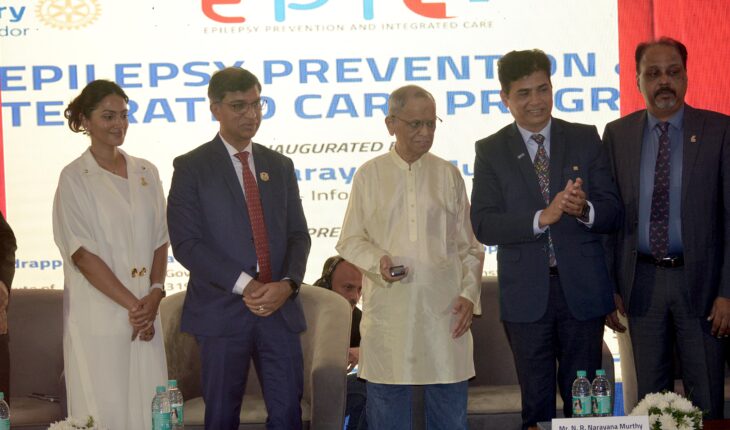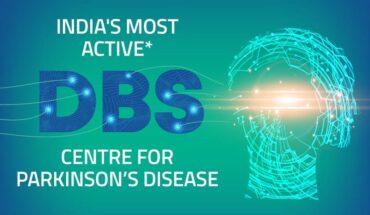Bengaluru: Aster Whitefield Hospital took a monumental step towards addressing epilepsy care with the launch of its Epilepsy Prevention & Integrated Care (EPIC) Program. This groundbreaking initiative, supported by Rotary International and Sukriya NGO, aims to provide free surgical treatment for patients suffering from intractable seizures, particularly those from economically disadvantaged backgrounds.
The grand inauguration, graced by the country’s tech luminary, Infosys founder, Mr. N. R. Narayana Murthy, along with Dr. Zeba Moopen, Non-Executive Director of Aster DM Healthcare, marked a significant milestone in India’s healthcare journey. Supported by Rotary International and Sukriya, an NGO committed to reducing the burden of epilepsy, the EPIC program aims to extend life-saving treatments to those most in need.
Mr. Narayana Murthy emphasized the importance of collaboration between public and private sectors in healthcare: “Epilepsy is a debilitating condition that, without timely intervention, devastates lives, especially in underprivileged communities. EPIC is a shining example of how focused programs can bridge healthcare gaps, ensuring that even the poorest patients have access to advanced treatments.”
The EPIC Program stands out for addressing epilepsy, a neurological disorder that predominantly affects low-income families, often exacerbating their social and economic challenges. Many patients suffer from intractable epilepsy, where medications fail, but surgery offers hope. Dr. Satish Rudrappa, Group Director of Aster International Institute of Neurosciences and Spine Care, highlighted, “With the EPIC Program, we aim to break the stigma around epilepsy, ensuring that even the most vulnerable patients receive the care they deserve.”
In addition to the EPIC Program, Aster Whitefield Hospital introduced advanced technologies like Mixed Reality, a first in South Asia. This groundbreaking combination of virtual and augmented reality enables neurosurgeons to visualize the human brain in 3D, allowing for precise, patient-centric treatments. The hospital also opened a Virtual Experience Room, giving patients and doctors a real-time, immersive feel of the innovative technology.
Adding to these advancements, the hospital launched Karnataka’s first Intraoperative Neuro Monitoring – Cascade IOMAX System. This cutting-edge system plays a vital role during brain and spine surgeries, safeguarding critical neural pathways, significantly enhancing patient safety, and improving outcomes, especially for epilepsy and spinal deformity surgeries.
To address stroke-related emergencies, the institute also unveiled the Hybrid Biplane Cathlab, designed to treat life-threatening conditions like aneurysms and arteriovenous malformations (AVM). Prof. Dr. Swaroop Gopal, Group Director of the Institute, said, “This is only the beginning. Our comprehensive approach to neurosurgical care ensures that we not only treat epilepsy but also establish ourselves as leaders in treating complex neurological conditions.”






